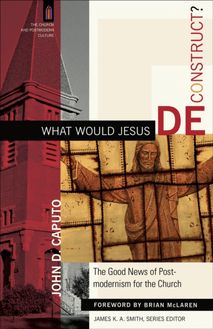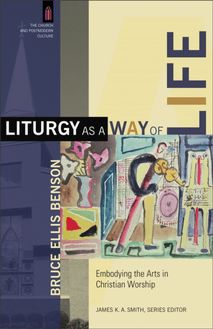-
 Univers
Univers
-
 Ebooks
Ebooks
-
 Livres audio
Livres audio
-
 Presse
Presse
-
 Podcasts
Podcasts
-
 BD
BD
-
 Documents
Documents
-
- Cours
- Révisions
- Ressources pédagogiques
- Sciences de l’éducation
- Manuels scolaires
- Langues
- Travaux de classe
- Annales de BEP
- Etudes supérieures
- Maternelle et primaire
- Fiches de lecture
- Orientation scolaire
- Méthodologie
- Corrigés de devoir
- Annales d’examens et concours
- Annales du bac
- Annales du brevet
- Rapports de stage
La lecture à portée de main
Vous pourrez modifier la taille du texte de cet ouvrage
Découvre YouScribe en t'inscrivant gratuitement
Je m'inscrisDécouvre YouScribe en t'inscrivant gratuitement
Je m'inscrisEn savoir plus
Vous pourrez modifier la taille du texte de cet ouvrage
En savoir plus

Description
Sujets
Informations
| Publié par | Baker Publishing Group |
| Date de parution | 01 août 2008 |
| Nombre de lectures | 0 |
| EAN13 | 9781441210685 |
| Langue | English |
Informations légales : prix de location à la page 0,0634€. Cette information est donnée uniquement à titre indicatif conformément à la législation en vigueur.
Extrait
GloboChrist
James K. A. Smith, series editor www.churchandpomo.org
The Church and Postmodern Culture series features high-profile theorists in continental philosophy and contemporary theology writing for a broad, nonspecialist audience interested in the impact of postmodern theory on the faith and practice of the church.
Also available in the series
James K. A. Smith, Who s Afraid of Postmodernism? Taking Derrida, Lyotard, and Foucault to Church
John D. Caputo, What Would Jesus Deconstruct? The Good News of Postmodernism for the Church
GloboChrist
The Great Commission Takes a Postmodern Turn
Carl Raschke
2008 by Carl Raschke
Published by Baker Academic a division of Baker Publishing Group P.O. Box 6287, Grand Rapids, MI 49516-6287 www.bakeracademic.com
Printed in the United States of America
All rights reserved. No part of this publication may be reproduced, stored in a retrieval system, or transmitted in any form or by any means-for example, electronic, photocopy, recording-without the prior written permission of the publisher. The only exception is brief quotations in printed reviews.
Library of Congress Cataloging-in-Publication Data
Raschke, Carl A. GloboChrist : the geat commission takes a postmodern turn : the church and postmodern culture / Carl Raschke. p. cm. Includes bibliographical references. ISBN 978-0-8010-3261-5 (pbk.) 1. Mass media in missionary work. 2. Communication-Religious aspects- Christianity. 3. Postmodernism-Religious aspects-Christianity. 4. Globalization- Religious aspects-Christianity. I. Title. BV2082.M3R37 2008 261-dc22 2008003933
Unless otherwise indicated, Scripture quotations are from the HOLY BIBLE, NEW INTERNATIONAL VERSION . NIV . Copyright 1973, 1978, 1984 by International Bible Society. Used by permission of Zondervan. All rights reserved.
Scripture quotations labeled NEB are from The New English Bible . Copyright 1961, 1970, 1989 by The Delegates of Oxford University Press and The Syndics of the Cambridge University Press. Reprinted by permission.
Scripture quotations labeled NRSV are from the New Revised Standard Version of the Bible, copyright 1989, by the Division of Christian Education of the National Council of the Churches of Christ in the United States of America. Used by permission. All rights reserved.
Scripture quotations labeled KJV are from the King James Version of the Bible.
To the memory of Douglas Strube, whose inestimable friendship, missionary heart, unflagging loyalty, and heroic but unsuccessful struggle against cancer inspired me to write GloboChrist
Contents
Series Preface
Series Editor s Foreword
Acknowledgments
Introduction
1. Globopomo: The Planetary Postmodern Moment
2. De-Signs of the Time
3. Utter Holiness or Wholly Otherness: Finding Fidelity among the Infidels
4. A Closer Look through the 10/40 Window
5. Radical Relationality: The Church in the Postmodern Cosmopolis
6. And Then the End Will Come
7. A Concluding Unacademic Postscript
Series Preface
Current discussions in the church-from emerging postmodern congregations to mainline missional congregations-are increasingly grappling with philosophical and theoretical questions related to postmodernity. In fact, it could be argued that developments in postmodern theory (especially questions of post-foundationalist epistemologies) have contributed to the breakdown of former barriers between evangelical, mainline, and Catholic faith communities. Postliberalism-a related effect of postmodernism-has engendered a new, confessional ecumenism wherein we find nondenominational evangelical congregations, mainline Protestant churches, and Catholic parishes all wrestling with the challenges of postmodernism and drawing on the culture of postmodernity as an opportunity for rethinking the shape of our churches.
This context presents an exciting opportunity for contemporary philosophy and critical theory to hit the ground, so to speak, by allowing high-level work in postmodern theory to serve the church s practice-including all the kinds of congregations and communions noted above. The goal of this series is to bring together high-profile theorists in continental philosophy and contemporary theology to write for a broad, nonspecialist audience interested in the impact of postmodern theory on the faith and practice of the church. Each book in the series will, from different angles and with different questions, undertake to answer questions such as What does postmodern theory have to say about the shape of the church? How should concrete, in-the-pew and on-the-ground religious practices be impacted by postmodernism? What should the church look like in postmodernity? What has Paris to do with Jerusalem?
The series is ecumenical not only with respect to its ecclesial destinations but also with respect to the facets of continental philosophy and theory that are represented. A wide variety of theoretical commitments will be included, ranging from deconstruction to Radical Orthodoxy, including voices from Badiou to Žižek and the usual suspects in between (Nietzsche, Heidegger, Levinas, Derrida, Foucault, Irigaray, Rorty, and others). Insofar as postmodernism occasions a retrieval of ancient sources, these contemporary sources will be brought into dialogue with Augustine, Irenaeus, Aquinas, and other resources. Drawing on the wisdom of established scholars in the field, the series will provide accessible introductions to postmodern thought with the specific aim of exploring its impact on ecclesial practice. The books are offered, one might say, as French lessons for the church.
Series Editor s Foreword
To shamelessly lift a line from a sequined and bell-bottomed Barbara Mandrell, Carl Raschke was pomo long before pomo was cool. Since the mid-1970s he has been on the vanguard of those engaging continental theory with an interest in not only theology but also the shape of lived religion on the ground. In short, he was doing the work envisioned by the Church and Postmodern Culture series since before I even knew how to spell church. So it is a distinct honor to welcome GloboChrist as the third volume in the series, a fitting follow-up to his groundbreaking book, The Next Reformation .
Judging from the book, however, Carl might want to consider becoming a fervent devotee of remnant theology-committed to the sense that God is present with the few who remain faithful- because this little manifesto is bound to shrink the circle of friends at his next dinner party. But its strident voice, which is an equal-opportunity offender on both the left and right, is also its virtue. It is precisely his fierce independence of thought that makes Raschke such an important voice in current discussions about the shape of the church s mission in our postmodern moment. As Raschke puts it, he is out to counter those who are giddy to believe that a new kind of Christian is simply an easier-to-get-along-with Christian (160). Contrary to those who espouse a postmodern account of mission or evangelism as a cover for engaging in transformative dialogue (or various other technical translations of kumbaya ), the core argument of GloboChrist suggests that the church s missional task in postmodernity is inevitably a vocation of conflict. The fulfillment of the Great Commission will not be without struggle, Raschke argues. Through dialogue, Muslims and Christians may come to agree on common points of their mutual Abrahamic faiths, but the differences will always outweigh the similarities. The differences make the difference (115).
Ironically, much that we get in the name of postmodern attentiveness to difference and the Other turns out to be a very timid, bland, apologetic stance that is rather embarrassed by difference and instead seeks ways, Rodney King-like, for us to all just get along. Indeed, much that traffics under this banner would be embarrassed by the very project of missions and evangelism. In short, postmodern valorization of difference has come to mean a veritable end of missions. But such responses are working out the very modern logic of toleration articulated by Locke, Kant, and others, whereas Raschke is articulating a more thoroughly postmodern account of mission that takes difference seriously enough to own up to the conflict it entails. In Raschke s project, Deleuze supersedes Derrida (21); his is an agonistic account of mission.
But most importantly, Raschke argues that a postmodern account of mission needs to flow from the logic of the incarnation. Just as God becomes enfleshed and contextualized in and for a particular time and a particular place- born of a woman, under the law in the fullness of time (Gal. 4:4), suffering under Pontius Pilate - so too is the church called to extend this incarnational presence. That is the nature of the missio Dei : not the communication of messages or the proliferation of programs-not even the planting of churches. It might not even be primarily about communicating some truth to those who are without it. Rather, it is about being Christ to and for the world. In a way that echoes both Kierkegaard and Bonhoeffer (fellow Lutherans in spirit with Raschke), Raschke suggests that this call to incarnational mission might require that we jettison some cherished distinctions (and fears). Incarnational ministry in a globopomo setting, he argues, means setting aside even the Christian/non-Christian distinction, particularly when being a Christian turns out to be a barrier to being Christ to one another (65). Mission is above all a project of radical translation; are we willing to let that translation escape the grammar and syntax of our eurocentric idioms?
The globopomo turn for the Great Commission is occasioned by two important realities. First, as Raschke rightly notes, postmodernism and globalization are inextricably linked. While European and North American (especially academic) discussions of postmodern theory tend to restrict it to the safe but la
-
 Univers
Univers
-
 Ebooks
Ebooks
-
 Livres audio
Livres audio
-
 Presse
Presse
-
 Podcasts
Podcasts
-
 BD
BD
-
 Documents
Documents
-
Jeunesse
-
Littérature
-
Ressources professionnelles
-
Santé et bien-être
-
Savoirs
-
Education
-
Loisirs et hobbies
-
Art, musique et cinéma
-
Actualité et débat de société
-
Jeunesse
-
Littérature
-
Ressources professionnelles
-
Santé et bien-être
-
Savoirs
-
Education
-
Loisirs et hobbies
-
Art, musique et cinéma
-
Actualité et débat de société
-
Actualités
-
Lifestyle
-
Presse jeunesse
-
Presse professionnelle
-
Pratique
-
Presse sportive
-
Presse internationale
-
Culture & Médias
-
Action et Aventures
-
Science-fiction et Fantasy
-
Société
-
Jeunesse
-
Littérature
-
Ressources professionnelles
-
Santé et bien-être
-
Savoirs
-
Education
-
Loisirs et hobbies
-
Art, musique et cinéma
-
Actualité et débat de société
- Cours
- Révisions
- Ressources pédagogiques
- Sciences de l’éducation
- Manuels scolaires
- Langues
- Travaux de classe
- Annales de BEP
- Etudes supérieures
- Maternelle et primaire
- Fiches de lecture
- Orientation scolaire
- Méthodologie
- Corrigés de devoir
- Annales d’examens et concours
- Annales du bac
- Annales du brevet
- Rapports de stage















